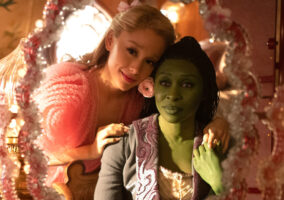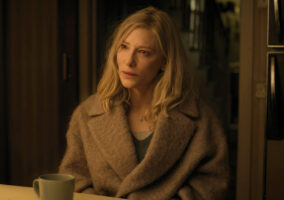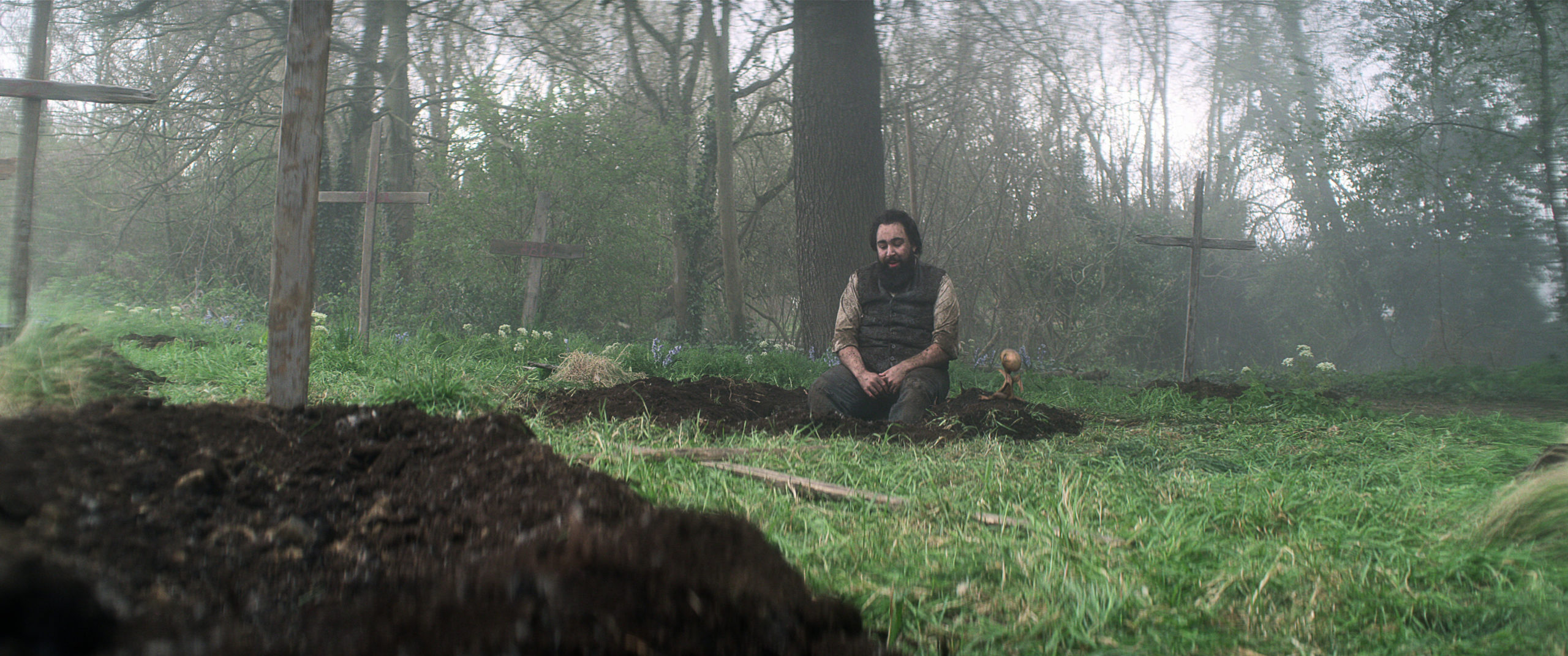
Having established who the character of Morpheus is in its premiere episode, The Sandman turns toward introducing some of the themes and motifs that will define the story going forward in its second outing. As Tom said to Lorenzo while we watched this episode the first time and got to the part where Abel dug himself out of his grave (to which Lorenzo gave a hearty “What the fuck?”), “Remember. It’s all literal.” Once you stop looking for metaphors, realize that this all exists within the realms of myth and ancient stories, and accept everything from a physical Sandman ruling your dreams to the actual Cain and Abel from the Bible as being exactly what they say they are, the story will make a lot more sense. Your dreams are things that actually happen to you. When someone says, “I need to see what the fates have in store,” they mean literally asking three ancient Greek witches for advice.
Lucienne accompanies the exhausted and recently returned Dream to his castle, which is mostly rubble. She tells him that, despite everyone else leaving the Dreaming, she stayed because she never felt abandoned, even when all the books went blank and the entire library disappeared. He is touched by her devotion. Vivienne Acheampong really is wonderful in these scenes. He attempts to restore his throne room (interpreted beautifully and accurately from the original books’ artwork), to its former glory, but he doesn’t have the juice. He informs Lucienne that he was captured and that his “tools,” the helm, ruby, and bag of sand, have been taken from him and he’ll need to get them back if he wants to regain his kingdom. A fallen king must regain his treasure and return his kingdom to glory. It’s an old tale, practically mythic; one of many that the series will wind up retelling.
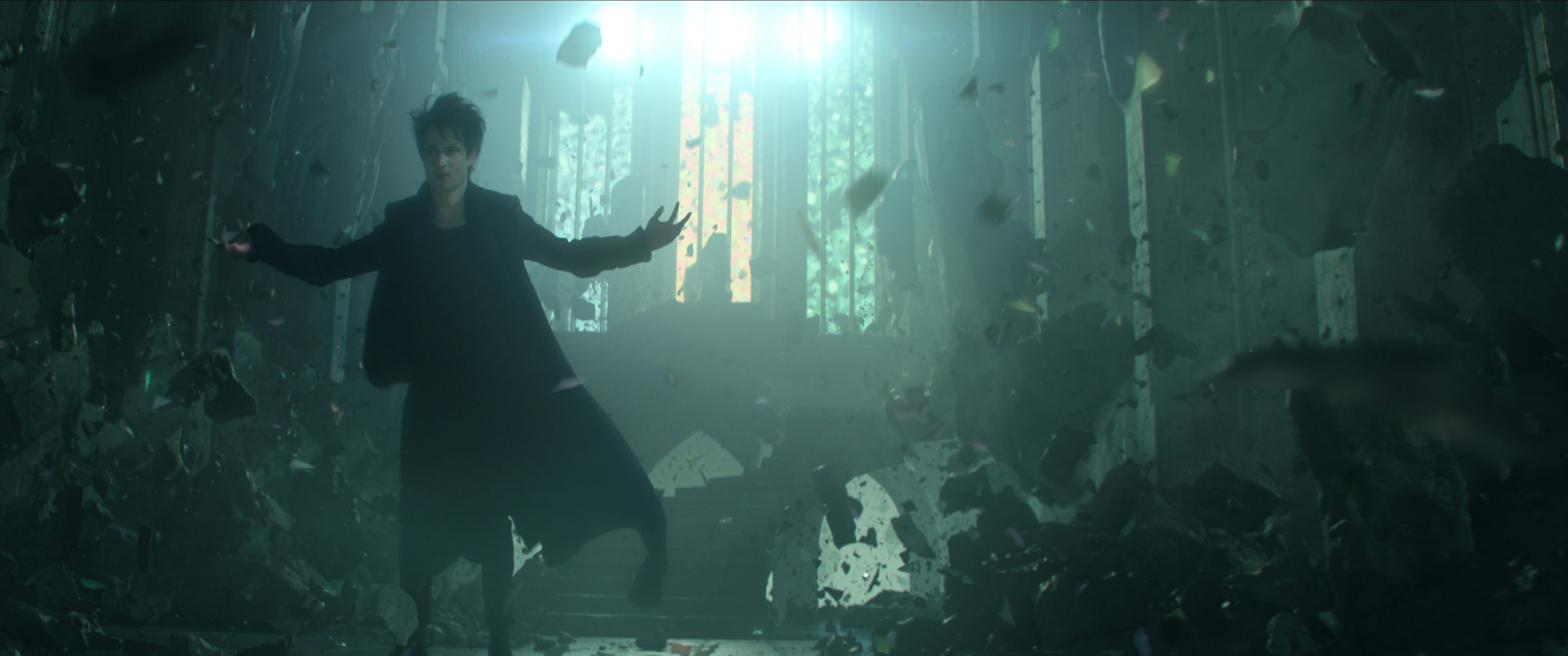
Meanwhile, in the waking world, Ethel Cripps is now a black market art dealer living in an incredibly art-directed and dramatically lit loft. She’s over a hundred years old, a polyglot, and also Joely Richardson. Girlfriend’s been busy over the last century and clearly, the shrewd young woman who wiled her way into possessing items of tremendous power figured out a way to make them work to her benefit like Roderick Burgess never could. The Corinthian pays a visit. “You’re one of his?” she asks knowingly and nonchalantly when he mentions the King of Dreams Burgess kept in his basement. He warns her that Morpheus will be coming for her to reclaim his stolen tools. He tells her he could teach her to use the tools to kill Dream; an idea that leaves her amused.
Dream discusses consulting The Fates and Lucienne isn’t thrilled by the idea. “They never tell you what you want to know.” She suggest he consult his siblings for help, mentioning quite sensibly that Destiny and Desire would know where his tools are. He responds with no small amount of indignation that he is quite sure his siblings know what happened to him and “not one of them came to my aid.”Dream’s relationships with his siblings are extremely complicated, each in their own way, and will be explored extensively over the course of the series. By the way, we haven’t mentioned it yet, but Tom Sturridge really is quite good in a role that can easily come off annoying or tiresome. The dusty voicework alone would challenge most actors, but he makes it work. We think the show’s creators are clearly going for a more human-appearing and -acting version of Dream than Gaiman’s original vision (he smiles and tears up way more than we would have imagined, given how much he’s described as cold and emotionless by everyone around him), but Sturridge does a good job of straddling that line of being weirdly off-putting and deeply human.
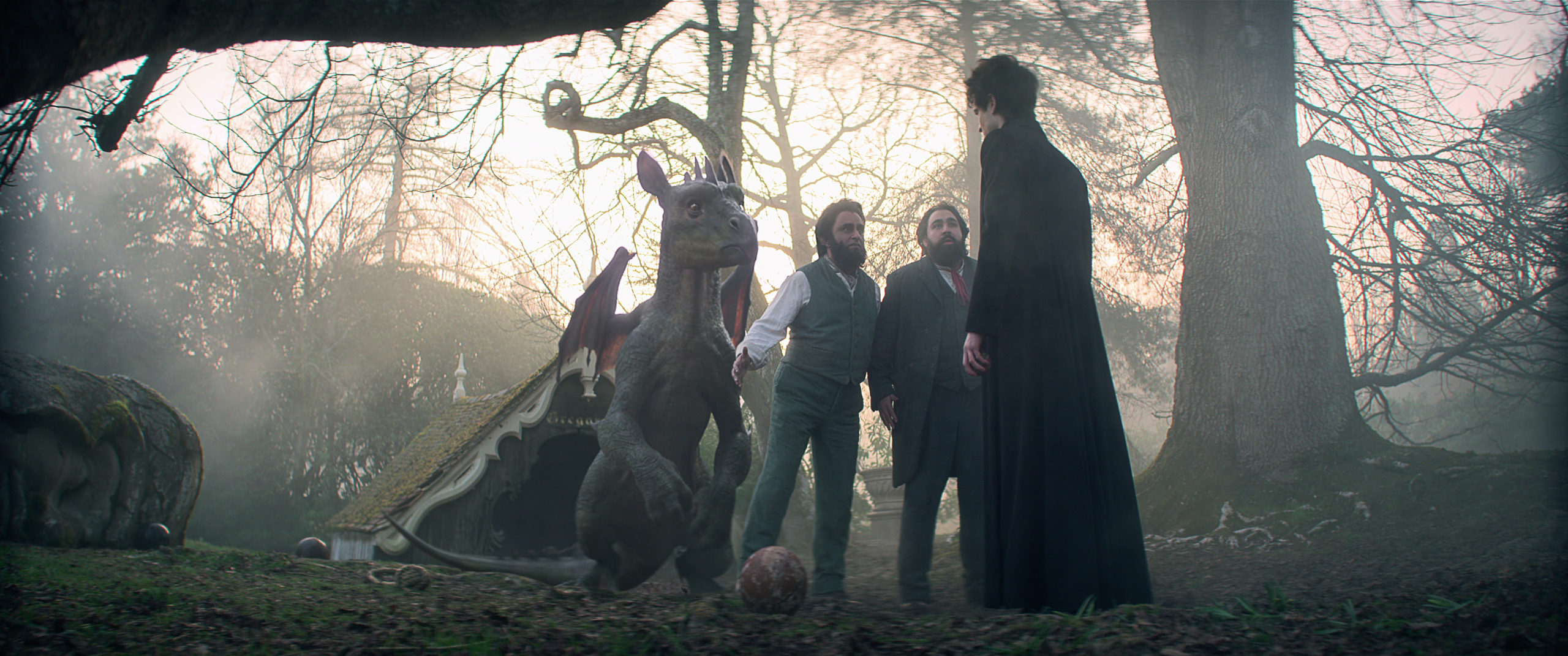
He tells Lucienne that he needs something intact that he created in the Dreaming in order to absorb it and regain enough power to gather the things he needs to pay the Fates. Cut to the adorable Gregory the Gargoyle and the introduction of Cain and Abel (Sanjeev Bhaskar and Asim Chaudhry, both wonderful). The two archetypal brothers live side by side in the House of Mystery and The House of Secrets. Cain and Abel were each narrators of long-running DC horror comic anthologies named after each of their houses long before Gaiman brought them into this universe. The Fates were also taken from an old horror comic called The Witching Hour. There were other even more direct references to the DC universe of superhero characters in the graphic novels, most of which have been stripped out of the TV series, which was the only way to go, as far as we’re concerned. You can’t tell this story without Cain and Abel, but you can and should cut members of the Justice League out of it without a problem.
Anyway, the two mythic brothers bicker exactly as much as you would expect them to. Dream tells them he needs to absorb Gregory, who he created to be a nightmare but who evidently is too adorable for the job so he plays in his yard all day in front of his very cute gargoylehouse. Cain is angry, as anyone would be, and Dream shuts him down, just as he shut Lucienne down last episode when she got too familiar with Morpheus about family matters he’d rather not discuss. On the one hand, Morpheus will tug at your heart when he shows his respect for the agency of all creatures and announces that he needs to ask Gregory’s permission to make a sacrifice for the good of the Dreaming. On the other hand, he doesn’t hesitate to shut down his staff if they annoy him, treating them more like slaves than staff. Note that he doesn’t ask Cain, Abel or Lucienne to make the sacrifice that Gregory does. There’s a very good reason for that, which is only implied in this scene: Dream didn’t create any of them. We’ll leave Lucienne’s origin for the series to eventually tell, but at the risk of repeating ourselves, Cain and Abel are Cain and Abel. The OGs. We point this out only to note that he occasionally treats beings of agency and sentience as if he owns them. He can be sensitive and imperious in equal measure. Director Jamie Childs really milks Gregory’s goodbye for as long as possible and we give credit to the FX team for rendering him with such emotion. A scene like this so early in the series really raises some questions about Dream and The Dreaming. There is clearly something fundamentally flawed about a scenario where one being has total control over sentient beings he creates and uncreates based on his needs and treats independent beings with agency as subject and slaves. In other news, Cain kills Abel with a rake after Gregory is absorbed.

Dream dives into a dark river of wild dreams and nightmares in order to steal what he needs for the three ladies in a sequence that probably doesn’t translate from the comics as well as we’d like. This was one of the times when we found ourselves wishing the FX design had a more impressionistic and less realistic approach. We might even have preferred animation for some of these scenes. He takes a crossroads from the dream of a Cambodian farmer, a hanged man from a Japanese horror film fan, and a snake as well as a large egg from someone’s dream barn or something. Having gathered his coins, he awaits on a dark plain for the being(s) he calls the Fates, the Hecate or the three-in-one. They show up to taunt, flirt, and berate him. This is a fun and weird scene that shows Gaiman’s facility with making the ancient and metaphorical both literal in a relatable way and completely weird in a way that feels modern. The three actresses (Dinita Gohil, Nina Wadia, Souad Faress) are also extremely well cast, occasionally giving the impression of being the same woman at different ages and other times seeming like three generations of the same family. Maiden/mother/crone formulations can be almost innately sexist just by their existence, but this scene is playful, these women are powerful, and we are traveling a world of fable and myth, where things like sexist metaphorical constructs turned literal are likely to be found. Note how Dream is conciliatory and unfailingly polite to them. This is less about fearing them (although he has good reason to) and more about his devotion to doing things the proper way. As he will say time and again during the course of this story, there are rules and Morpheus is the last being who would consider abandoning them or breaking them. Note also how he “mistakenly” asks each of them a second question, being reminded each time not to do so. This sort of repetition, often in threes, is straight out of myth and fairy tales – think of Little Red Riding hood and the “My, what big teeth you have” series of calls and responses, for instance – and it inspires the question of whether Dream is really mistakenly forgetting the rules each time or if he’s just following the ancient formula that a King of Stories would be expected to. Either way, sfter swallowing the snake whole, the Three inform him that his bag was sold in London to a magic user named Johanna Constantine. Dream notes that he knew someone by that name 300 years ago. They tell him his helm was traded to a demon for the Amulet of Protection and they tell him his ruby was “passed from a mother to a son.” Back in Ethel Cripps’ loft, she gives her side of the story to Corinthian, telling him that none of the items are in her possession and using the Amulet she got from the demon to send him painfully away.

Cain resurrects (as a constantly retold story, not to mention a myth must) and discovers the egg Dream left for him. “Thanks for burying me in a shallow grave this time” he says to his brother, when he brings the egg home. An adorable golden baby gargoyle hatches from the egg. Abel wants to name it Irving, but Cain informs him that gargoyle names must always begin with a G because these beings exist in realms bound by rules. One might almost think there are serious consequences should any being in these realms break the rules. Abel suggests Girving and Cain kills him again out of spite. When Abel digs out of his grave again, he explains to Goldie that they simply can’t help who they are: the first murderer and the first victim. He tells Goldie a story that’s just a wishlist of what his life could be with a brother who loved him all the time, which lets us know that, despite the repetitive and predetermined nature of these beings’ lives, they have hopes and dreams just like any person would. He tells Goldie he’s happy to be murdered if it makes Cain happy, because what are brothers for?
Ethel goes to visit her son Johnny (David Thewlis, playing a creepy weirdo to the hilt once again), who is locked away in an institution. She asks about his therapy and he suggests what she really wants to know is if he’s forgiven her. Meanwhile, Dream heads to the pier and informs Lucienne that he’s off to London to find his bag of sand before he heads to Hell to look for his helm. She pleads with him to take a raven with him because they can fly back and forth between the waking world and the Dreaming. Having seen his former raven Jessamy murdered for trying to save him, he is not eager to take on another one. “I do not need a minder. I am Dream of the Endless.” You can sense his growing annoyance with her concern, which only reflects his lack of power back at him. These sorts of little relationship arcs were not really in the books, but they’re a smart way to adapt it for the medium of TV, which practically begs for these sorts of emotional journeys.
The Corinthian reforms outside the gates of the Dreaming, where Lucienne comes upon him. She tries to convince him to stay, but he leaves again, reminding her that you can’t expect Dream to change and you can’t save him either. Did we mention that this episode was all about establishing themes and motifs that will play out over the course of the story? Well, put a pin in that one, definitely.
Next: Dream a Little Dream of Me
THE SANDMAN, Chapter 1. Sleep of the Just Next Post:
THE GILDED AGE stars Denée Benton and Louisa Jacobson for TATLER Magazine
Please review our Community Guidelines before posting a comment. Thank you!

